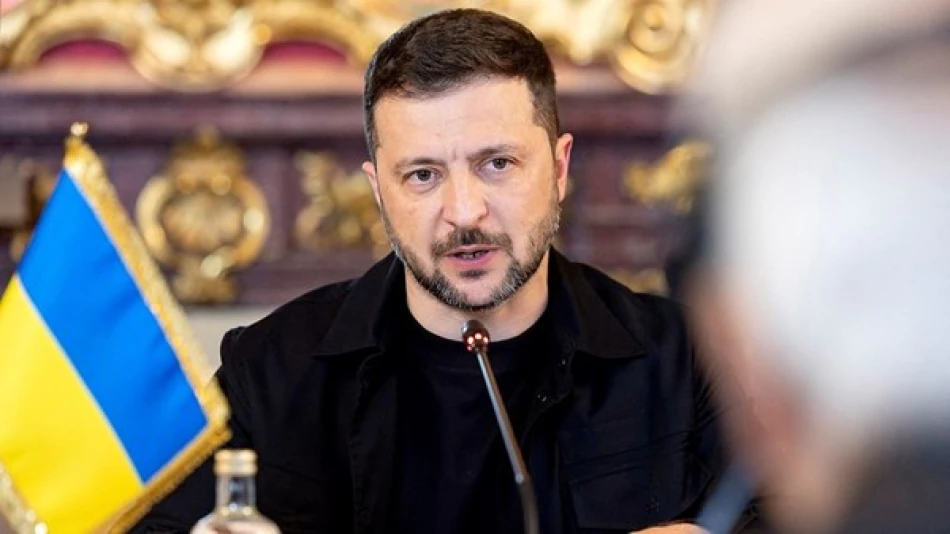
White House Considers Inviting Zelenskyy to Attend 'Alaska Summit'
White House Considers Ukraine's Zelensky for Alaska Summit as Trump-Putin Meeting Takes Shape
The Biden administration is weighing whether to invite Ukrainian President Volodymyr Zelensky to Alaska during President Trump's planned August 15 meeting with Russian President Vladimir Putin, according to NBC News. The potential three-way dynamic could fundamentally alter what was initially conceived as a bilateral summit, injecting Ukraine's perspective directly into high-stakes diplomacy between Washington and Moscow.
A Diplomatic Gamble in the Making
According to a senior U.S. official and three sources familiar with internal discussions, the Zelensky invitation remains under active consideration but far from finalized. "It's being discussed," one source told NBC, highlighting the fluid nature of summit planning that could reshape the geopolitical landscape.
The Alaska venue itself carries symbolic weight—neutral U.S. territory that avoids the optics of either leader traveling to the other's homeland, while maintaining American control over the diplomatic environment.
Strategic Implications for Ukraine
Breaking the Bilateral Framework
Including Zelensky would transform a traditional superpower summit into something unprecedented: a direct confrontation between Ukraine's wartime leader and the Russian president who ordered the invasion. This setup could either accelerate meaningful dialogue or create diplomatic theater with limited substantive outcomes.
Timing and Leverage
The August timing coincides with Ukraine's ongoing counteroffensive efforts and critical decisions about Western military aid. Zelensky's presence would ensure Ukrainian priorities remain central to any Trump-Putin discussions about territorial concessions or ceasefire arrangements.
Historical Context and Precedents
Alaska has hosted significant U.S.-Russia diplomatic encounters before, but adding a third party—especially one actively at war with Russia—breaks conventional summit protocols. The closest historical parallel might be the Camp David Accords, where President Carter mediated between Egypt and Israel, though those nations weren't engaged in active warfare.
Previous Trump-Putin meetings, including Helsinki in 2018 and Hamburg in 2017, were criticized for lack of transparency and concrete outcomes. The potential inclusion of Zelensky could address those concerns while creating new complications around message coordination and unified Western positioning.
Risks and Opportunities
For Ukraine, the invitation represents both opportunity and risk. Direct access to Putin could enable Zelensky to challenge Russian narratives personally, but it might also legitimize Moscow's position as an equal negotiating partner rather than an aggressor nation.
The Biden administration's consideration of this invitation signals recognition that sustainable solutions require Ukrainian buy-in, not just U.S.-Russia agreements. However, it also risks creating unrealistic expectations for breakthrough diplomacy in a highly constrained environment.
Whether Zelensky ultimately travels to Alaska may depend on battlefield developments, domestic political calculations in all three nations, and the specific agenda framework that emerges for the summit itself.
Most Viewed News

 Layla Al Mansoori
Layla Al Mansoori






